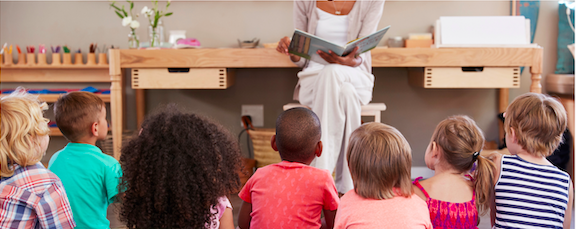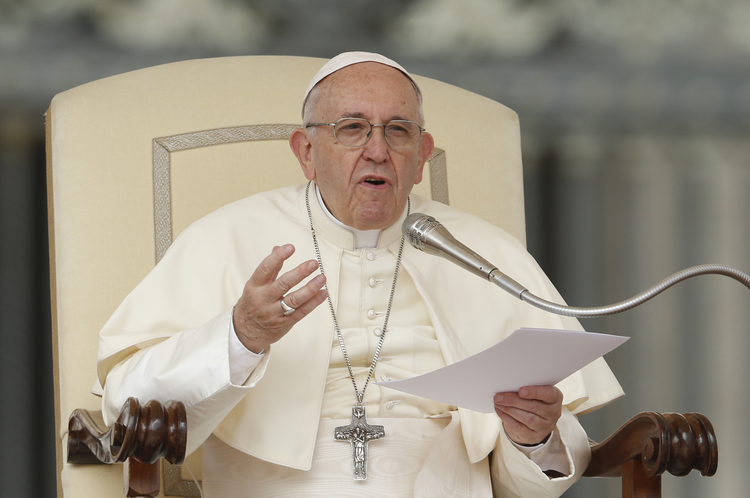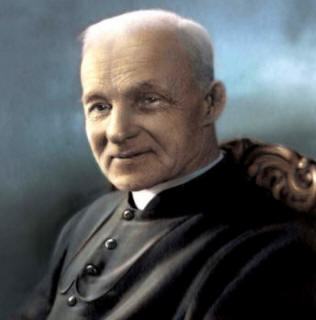
Recognition & Appreciation of the Catechist’s Role
May 31, 2021
 Pope Francis recently released a document, Antiquum Ministerium (The Ministry of Catechist) In it, he discusses the history of catechists and states, “In our own day too, many competent and dedicated catechists are community leaders in various parts of the world and carry out a mission invaluable for the transmission and growth of the faith.”
Pope Francis recently released a document, Antiquum Ministerium (The Ministry of Catechist) In it, he discusses the history of catechists and states, “In our own day too, many competent and dedicated catechists are community leaders in various parts of the world and carry out a mission invaluable for the transmission and growth of the faith.”
I’ve been a Catechist for over 20 years. I live in the South, as I have for most of my life. Catholic schools are not as plentiful here, so most Catholics are taught about the faith and the sacraments by catechists within their parish. Catechists have been an incredibly important part of my formation and as my kids have grown up, I have been a part of their formation; from preschool to high school youth group. It’s an important, beautiful, difficult but incredibly rewarding job. Some of my best friends are those with whom I have co-taught, as our children have grown up together.
Catechists face some real challenges. The biggest hindrance is that we only have the kids for about 90-minutes each week. This time that we have with them is precious. As one of my best friends and fellow catechists would say “SOULS ARE AT STAKE!!” Of course, parents are the primary catechists and what is taught and caught at home is essential. We have to make the best use we can of the window of time we are given to build upon their formation (or lack of it) at home.
precious. As one of my best friends and fellow catechists would say “SOULS ARE AT STAKE!!” Of course, parents are the primary catechists and what is taught and caught at home is essential. We have to make the best use we can of the window of time we are given to build upon their formation (or lack of it) at home.
Pope Paul VI states “Modern man listens more willingly to witnesses than to teachers, and if he does listen to teachers, it is because they are witnesses.” (Evangelii Nuntiandi, 41) I know in my own life, hearing the teaching of the church has certainly been important. However, when we SEE these teachings lived out, the lessons become much more powerful.
 According to Pope Francis’ newly written document, Catechists should “be men and women of deep faith and human maturity, active participants in the life of the Christian community, capable of welcoming others, being generous and living a life of fraternal communion. They should also receive suitable biblical, theological, pastoral and pedagogical formation to be competent communicators of the truth of the faith and they should have some prior experience of catechesis.” Key to making the best of our time with the students is our own formation. We must, like Mary, be open to receiving what our Heavenly Father has for us in our own lives by being students ourselves, having a faithful prayer life, and participating in the sacraments. There is no substitute for this.
According to Pope Francis’ newly written document, Catechists should “be men and women of deep faith and human maturity, active participants in the life of the Christian community, capable of welcoming others, being generous and living a life of fraternal communion. They should also receive suitable biblical, theological, pastoral and pedagogical formation to be competent communicators of the truth of the faith and they should have some prior experience of catechesis.” Key to making the best of our time with the students is our own formation. We must, like Mary, be open to receiving what our Heavenly Father has for us in our own lives by being students ourselves, having a faithful prayer life, and participating in the sacraments. There is no substitute for this.
What does a parish community that has effective catechesis look like? According to Antiquum Ministerium, “it speaks of the communion of life as a sign of the fruitfulness of an authentic catechesis.”
In other words, effective catechesis results in community. I’ve certainly seen that. In my own parish community, the people are amazing. One of the most beautiful observations I’ve made is that the people in a parish have such varied gifts and when a parish is able to use the best gifts of these members, it thrives. The document goes on to point out, “The Apostle Paul authoritatively attests to this when he states that ‘there are different kinds of spiritual gifts but the same Spirit; there are different forms of service but the same Lord; there are different workings but the same God who produces all of them in everyone. To each individual the manifestation of the Spirit is given for some benefit. To one is given through the Spirit the expression of wisdom; to another the expression of knowledge according to the same Spirit; to another faith by the same Spirit; to another gifts of healing by the one Spirit; to another mighty deeds; to another prophecy; to another discernment of spirits; to another varieties of tongues; to another interpretation of tongues. But one and the same Spirit produces all of these, distributing them individually to each person as he wishes’ (1 Cor 12:4-11).”
in a parish have such varied gifts and when a parish is able to use the best gifts of these members, it thrives. The document goes on to point out, “The Apostle Paul authoritatively attests to this when he states that ‘there are different kinds of spiritual gifts but the same Spirit; there are different forms of service but the same Lord; there are different workings but the same God who produces all of them in everyone. To each individual the manifestation of the Spirit is given for some benefit. To one is given through the Spirit the expression of wisdom; to another the expression of knowledge according to the same Spirit; to another faith by the same Spirit; to another gifts of healing by the one Spirit; to another mighty deeds; to another prophecy; to another discernment of spirits; to another varieties of tongues; to another interpretation of tongues. But one and the same Spirit produces all of these, distributing them individually to each person as he wishes’ (1 Cor 12:4-11).”
 I once heard a homily where the priest compared our gifts to superpowers. He said we each had gifts to give and that when we use them to build up the church, the Holy Spirit enters in and elevates our human gifts to superpowers. St. Andre Bessette demonstrates this phenomena quite well. His job: Doorkeeper of Notre Dame College in Montreal. Some would say his job was meaningless. He was sickly and didn’t have much of an education. However, he gave what he had and the Holy Spirit entered in to that gift. Many people he greeted experienced miraculous healings. He never accepted credit for these miracles by attributing them to St. Joseph’s intercession. We all need to offer our gifts to the church, no matter what they might be, and allow the Holy Spirit to ameliorate them.
I once heard a homily where the priest compared our gifts to superpowers. He said we each had gifts to give and that when we use them to build up the church, the Holy Spirit enters in and elevates our human gifts to superpowers. St. Andre Bessette demonstrates this phenomena quite well. His job: Doorkeeper of Notre Dame College in Montreal. Some would say his job was meaningless. He was sickly and didn’t have much of an education. However, he gave what he had and the Holy Spirit entered in to that gift. Many people he greeted experienced miraculous healings. He never accepted credit for these miracles by attributing them to St. Joseph’s intercession. We all need to offer our gifts to the church, no matter what they might be, and allow the Holy Spirit to ameliorate them.
Catechists have an integral role in handing on the faith. By formalizing this ministry, Pope Francis elevates this function and gives recognition to those who step-up to this duty. How fortuitous that just upon this new proclamation, Ruah Woods Press will soon be shipping a new addition to our Theology of the Body curriculum designed especially for catechists. The K-5 TOB Catechist Companions (for homeschooling and Parish Education Programs) will ship next month! Catechists will find these 5 Theology of the Body lessons, with accompanying storybook, to be a beautiful, effective, and super easy way to teach the children in their PREP class about their authentic identity and dignity of the human person, as created by God. We are so thankful for the many Catechists that give their gifts to our church and continue to pass down the truths of the faith from generation to generation.
to this duty. How fortuitous that just upon this new proclamation, Ruah Woods Press will soon be shipping a new addition to our Theology of the Body curriculum designed especially for catechists. The K-5 TOB Catechist Companions (for homeschooling and Parish Education Programs) will ship next month! Catechists will find these 5 Theology of the Body lessons, with accompanying storybook, to be a beautiful, effective, and super easy way to teach the children in their PREP class about their authentic identity and dignity of the human person, as created by God. We are so thankful for the many Catechists that give their gifts to our church and continue to pass down the truths of the faith from generation to generation.

Written by, Kathleen Cory,
Regional Curriculum Consultant for Ruah Woods Press (South)
Share